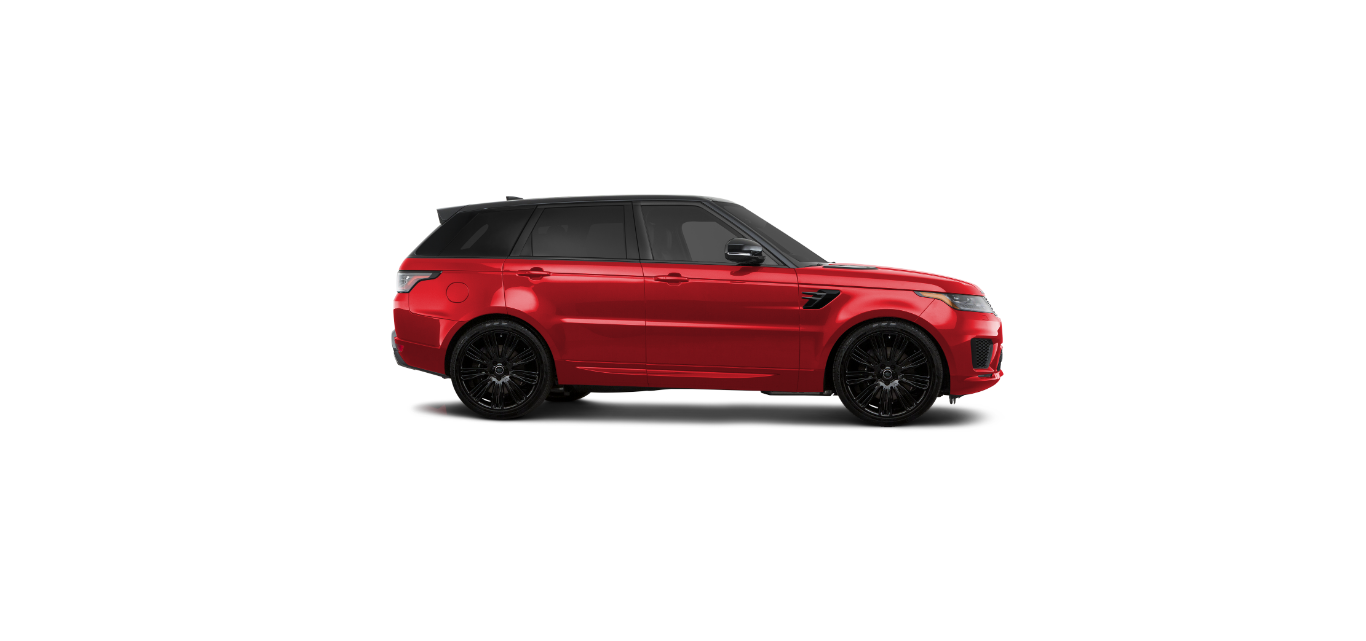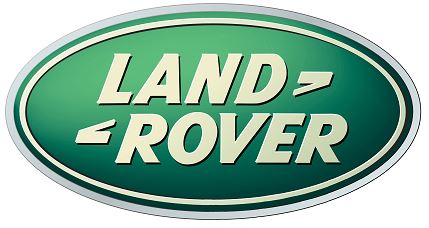2022 Land Rover Range Rover Sport Transmission
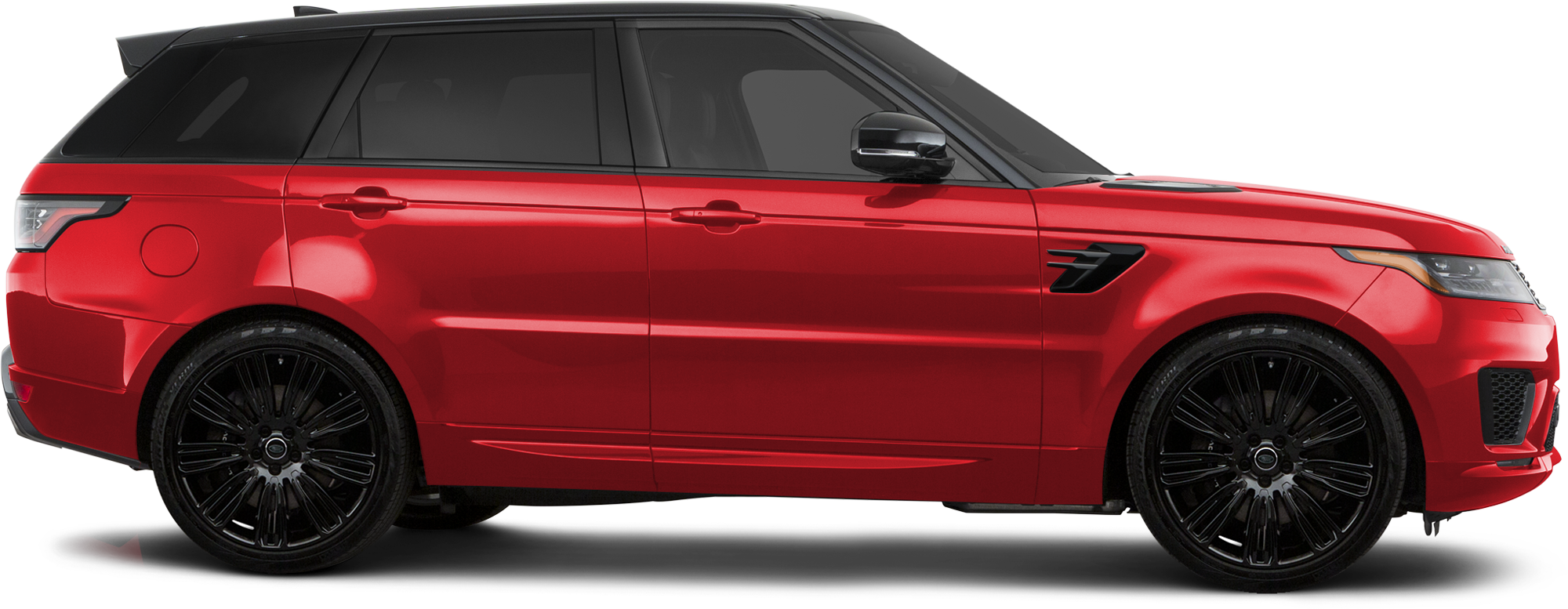
AUTOMATIC TRANSMISSION
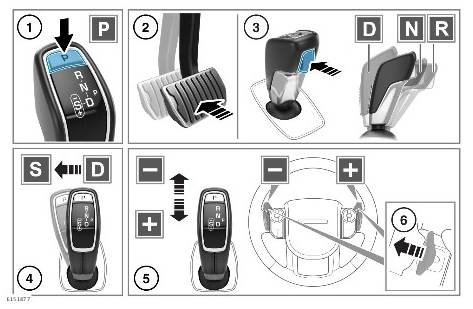
P should only be engaged when the vehicle is stationary. If any other gear position is selected while the vehicle is stationary, the vehicle can move unexpectedly, which may result in death or serious injury. Always make sure the Electric Parking Brake (EPB) is applied after engaging P.
Do not allow the vehicle to remain stationary with a drive gear selected and the engine running. If the engine is to idle for a prolonged period, select P or N and apply the Electric Parking Brake (EPB). The vehicle may move unexpectedly with any other gear position selected, which may result in serious injury or death.
Never select P while the vehicle is in motion. Doing so can result in serious transmission damage.
Never select R while the vehicle is in forwarding motion. Doing so can result in serious transmission damage.
Never select a forward gear while the vehicle is moving backward. Doing so can result in serious transmission damage.
The gear selection status of the gear selector and the steering wheel’s paddle shift is displayed in the instrument panel. The appropriate indicator light on top of the gear selector illuminates to confirm the selection.
When the gear selector is released, after the normal operation, it returns to the central position, except for when in the Sport (S) position.
If the driver’s door is opened with the transmission engaged in R, D, or S and the brake pedal is released, then P is automatically selected.
- Press to select P. The P indicator lamp illuminates to confirm.
Select P before switching off the engine.
NOTESP can be selected from any gear selector position.
NOTESP cannot be selected by manually moving the gear selector.
NOTESIf the engine is switched off with Neutral (N) selected, the system waits for 10 minutes before selecting P. This procedure allows for the vehicle to be conveyed through a car wash only and should not be used for vehicle recovery purposes.
- When the vehicle is stationary, press the brake pedal before selecting D, N, or R.
- With the brake pedal still pressed, press the button to allow the gear selector to be moved:
Rearward to select D.
Forward a short way to select N.
Forward a long way to select R.
NOTESThe button must be pressed in order to make most gear selections. A button press is not required when selecting N from D or R. A button press is also not required when moving between S and D.
- While in D, move the gear selector to one side movement to select S.
NOTES
Reverse this action to return to D.
- While in Sport (S), manual selection of the gears can be made by pulling the gear selector back for up-shifts and pushing forward for down-shifts.
The manual gear selection status is displayed in the instrument panel.
The relevant gear selector indicator shows the status of the manual gear selection:
Continuous illumination confirms the driver’s gear change request is recognized and selected.
On or off flashing confirms the driver’s gear change request is recognized but not selected.
Paddle shifts: Allow for manual gear selection while in D or S. Lightly pull the left paddle for down-shifts, or lightly pull the right paddle for up-shifts. To exit manual mode, pull and hold the right paddle shift for approximately 1 second. The gear will return directly to the previous automatic operation in D or S.
The gear shift paddles can be configured to be active in both D and S or active in S only, via the Vehicle settings menu. See INSTRUMENT PANEL MENU.
The sequential shift can be effective when rapid acceleration and engine braking are required.
A gear shift indicator warning light illuminates briefly at the recommended gear change point. See GEARSHIFT (GREEN).
If the gear selector remains in the D position, temporary use of the manual gear selection mode is held while the driver is accelerating. The manual gear selection is also held while decelerating, cornering or continuing to request gearshift changes via the steering wheel paddle shifts.
If continued use of the paddle shifts is required, select S.
SELECTING HIGH AND LOW RANGE
Do not change from high range to low range while the vehicle is in motion. Doing so can result in damage to the transmission.
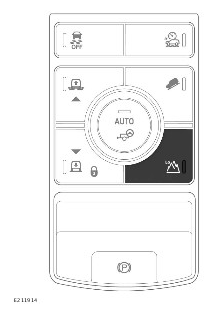
The Lo button is used to alternate the engagement of the transfer case between low range or high range.
The Lo button only operates with the engine running.
Low range should only be used in situations where low-speed maneuvering is necessary, including more extreme off-road conditions. High range should be selected for normal road driving. Press the Lo button, located on the center console, to engage the transfer case into low range. The button’s LED indicator lamp flashes during the change and remains illuminated to confirm the selection. The message center briefly displays the Low range of selected messages. The instrument panel also illuminates the low-range warning lamp. See LOW RANGE (GREEN) Press the Lo button again to engage the transfer case into high range. The button’s LED indicator lamp flashes during the change and extinguishes to confirm the selection. The message center briefly displays the High range of selected messages. The low-range warning lamp also extinguishes. The vehicle should be stationary, with the engine running, during a transfer case range change selection.
Operate as follows:
- Use the gear selector to engage Neutral (N).
- Press the Lo button to engage the transfer case into the high or low range, as required.
NOTES
If the Lo button is pressed when the vehicle’s speed is too high, the message center displays the maximum speed for the range change.
NOTESIf the Lo button is pressed before N is selected, the message center displays a relevant message.
- Use the gear selector to engage Drive (D).
The procedure can also be used for changing from low range to high range with the vehicle traveling at a speed of less than 37 mph (60 km/h).
LIMP-HOME MODE
The driver should be aware that the vehicle’s performance is reduced and the use of the steering wheel’s paddle shifts is disabled. Failure to take this into account when driving may result in accidents causing serious injury or death. If a transmission system fault is detected, the message center displays a warning message. In this event, only limited gear may become available. If possible, the vehicle should be carefully driven to the nearest place of safety. In this event, seek qualified assistance. Some transmission faults may cause the gear selector to be locked in position until the ignition is switched off. A flashing gear status in the message center indicates that the driver’s gear request cannot be engaged. In this event, select Neutral (N) and then select the required gear change again. If the transmission is still unable to engage the requested gear, contact a retailer/authorized repairer.
